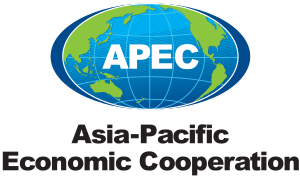Business and Economy
APEC urged to create labor market information system

FILE: In terms of information asymmetry, the study found that workers could be misallocated to tasks and sectors in case their employers do not have access to their measures of productivity. (Photo: Asia-Pacific Economic Commission/ Wikipedia)
MANILA— The Philippines and other Asia-Pacific Economic Cooperation (APEC) members need to create a labor market information system in order to advance labor mobility, according to a policy note by the Philippine Institute for Development Studies (PIDS).
In a policy note, Leonardo A. Lanzona Jr., professor at the Ateneo de Manila University Economics Department, said full information is imperative in addressing the problems of asymmetric information and transaction costs.
In terms of information asymmetry, the study found that workers could be misallocated to tasks and sectors in case their employers do not have access to their measures of productivity.
Lanzona noted the labor market information system not only provides information on the migrant transactions and market imbalances but also on the kinds of rules, contracts and institutions that frame such transactions.
“Limiting the information gathered on demand and supply factors can cause us to focus only on a particular type of labor, say skilled worker, and hence may lead us to ignore other (perhaps informal) forms of labor comprising a substantial part of labor mobility,” he said.
To create such system, the paper underscored the need to examine and standardize various codes and laws governing the different types of labor markets found in each APEC economy.
“Broader support and agreement for standards among the APEC economies should lead to more transparent and less fraudulent methods of entry. The establishment of standardized rules and institutions is a win-win proposition for the global economy and the individual economies,” it said.
Lanzona further said information gathering also creates an environment that seeks better alternatives toward more specialized and more lucrative forms of migration and reduces the transaction costs.
The paper asserted that the presence of transaction costs such as high remittance fees might negatively affect the resources of poor migrants and their families in the countries of origin.
It recommended the adoption of national and regional qualifications frameworks as compilations of reliable data on the stocks and flows of qualifications.
The paper also encouraged the expansion of the policy of the Association of Southeast Asian Nations on visa-free entries of all APEC economies as one of the ways to address transaction cost issues.
Moreover, it said greater information should be gathered on social networks that have been proven to be effective means of labor mobility.
“As riskier routes of labor mobility are developed, the goal is to make labor mobility efficient and more transparent by expanding particular social networks that encourage labor mobility,” it added.





















